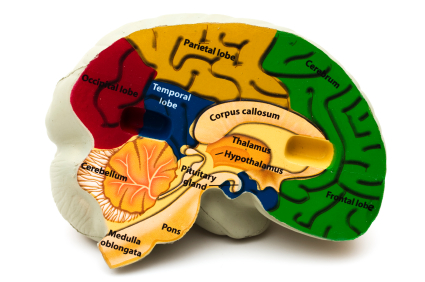Teachers and Musicians have suspected this for a long time, but now it’s official:
“Early musical training can produce long-lasting changes in behavior and on the brain”
This statement comes from a recent research study published in January 2013 in the Journal of Neuroscience.
In the study, 36 highly skilled musicians were tested. The musician group was then split equally between those who had learned music before the age of seven and those who had learned after the age of seven.
Now, I won’t bore you with all the intricacies of the paper. As you can imagine with a Neuroscience journal it all gets pretty “heavy” with jargon, measurements and technical terms fairly quickly, but I can tell you that after reading it, there are a few key points to note which are very relevant to music teachers and parents:
In the study, they found that despite the fact that the 36 highly skilled musicians had done similar amounts of training and practice, the group who had learned music before the age of seven had more extensive wiring of the corpus callosum: which is the area of the brain which links the two hemispheres together.
What this means is that if a child starts to play an instrument before the age of seven, they have more chance of developing those areas of the brain more fully than if they did not learn to play an instrument.
This is of course very important research when it comes to educating about the value of music programs in schools. At a time where families are stretched with commitments and music can seem like just one more thing to add into a day, it’s great to know there is real value learning music at young ages while the brain is still developing and this can’t be developed in the same way later on in life.
In the words of the researchers:
“training before the age of 7 years results in changes (in the brain) that may serve as a scaffold upon which ongoing experience can build”
Click here to read the extract of the research for yourself.
Christopher J. Steele, Jennifer A. Bailey, Robert J. Zatorre, and Virginia B. Penhune “Early Musical Training and White-Matter Plasticity in the Corpus Callosum: Evidence for a Sensitive Period” The Journal of Neuroscience, 16 January 2013, 33(3):1282-1290; doi:10.1523/JNEUROSCI.3578-12.2013



any information about the value of music to the learning experience is a plus in the interest of students the world over.
To be reminded of the importance of starting music early inspires me to do more programs with younger groups. Conclusive research always helps to justify and make early learning programs more worthwhile.
In the wake of the Park County RE2 School District Budget cuts here in Colorado, this was very supportive to read. I know my music education started when I was 4 years old. Sadly it looks like elementary music will be eliminated and MS/HS music cut to part-time for next year.
Very useful article
[…] Parents may wonder, why should I start lessons now instead of waiting until my child is… older, in grade school, can read, can sit 30 minutes, etc.? New research shows getting your child into music lessons before age 7 helps to develop areas of the brain more fully than if they had started studying music after age 7. Read more about it here: Why It’s Important to Start Music Young. […]